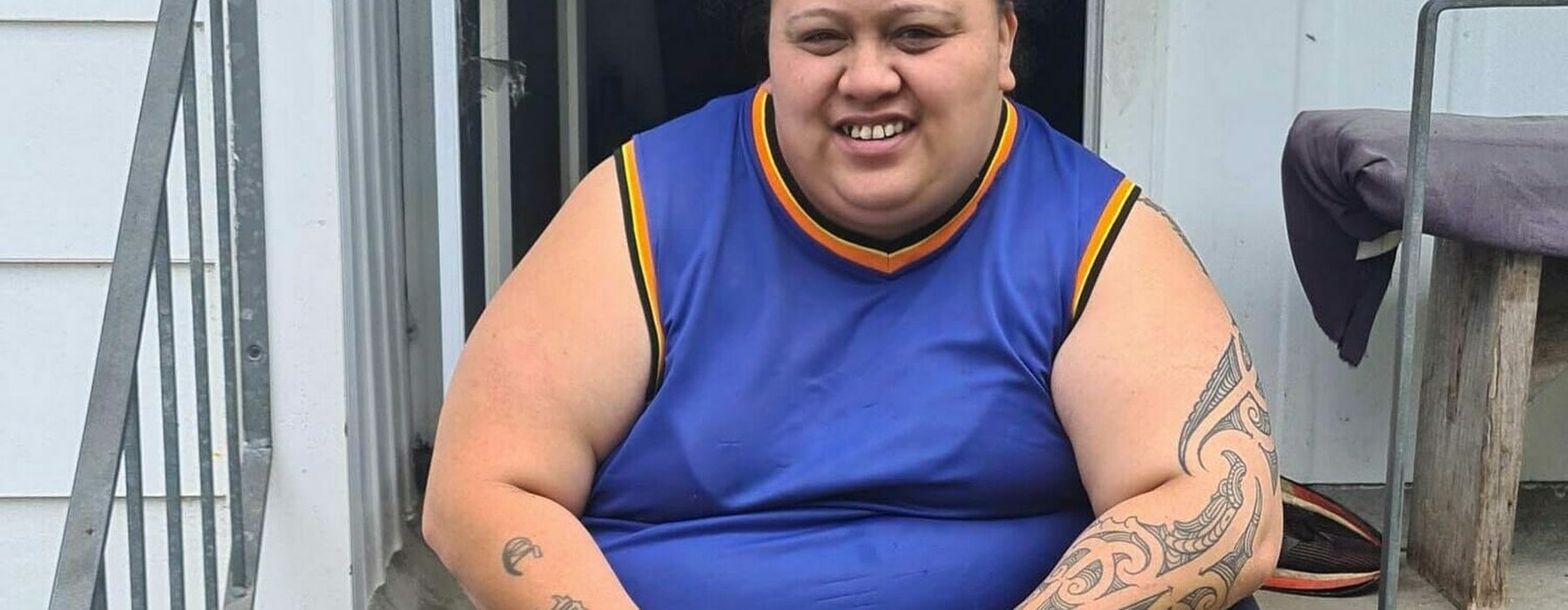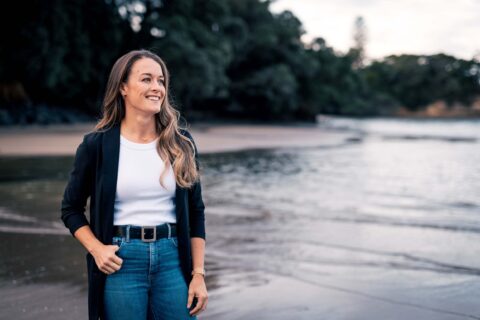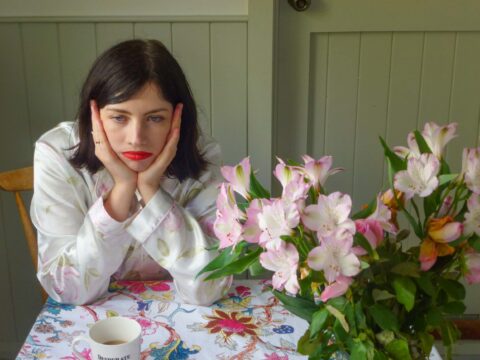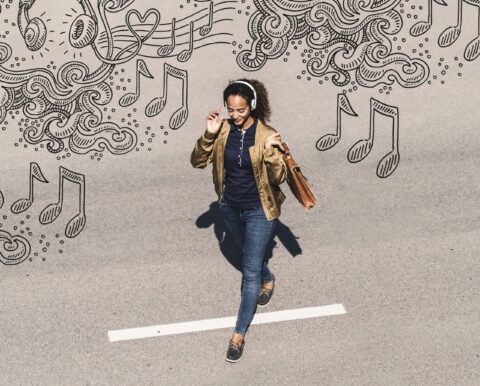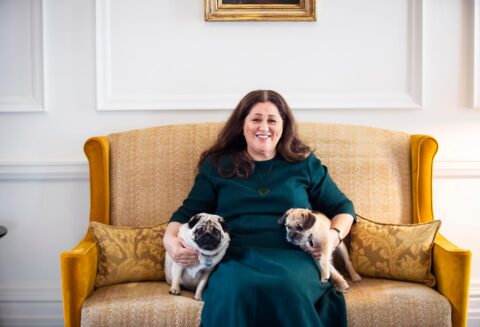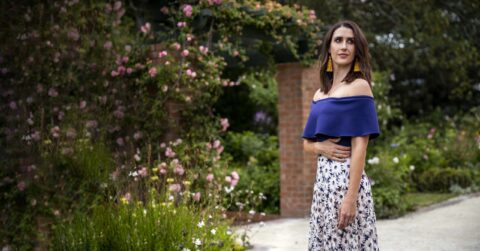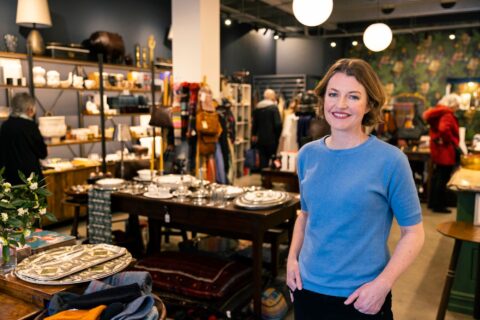After being homeless for many years, Potoz now has a place to call her own, thanks to a little help from Auckland City Mission, writes Donna Fleming.
It’s not flash or fancy; just a basic white weatherboard house on a corner site in a residential suburb in West Auckland. But to its occupant, mum-of-five Potoz, the house is a haven.
Potoz – who prefers to be known by the nickname she was given on the streets rather than her real name – can now do things most of us take for granted. She can sit on the deck in warm weather, watching as ducks from a nearby park waddle across the lawn. She can cook her own meals in her kitchen, wash her clothes in the washing machine.
While she may not be able to put nails in the walls to hang pictures, she can display photos of loved ones in frames on shelves in the living room. She is warm and dry, and she is safe.
For many people, the term “homeless” brings to mind men in filthy clothing sleeping on park benches and in doorways. But there are different degrees of homelessness, and far more women are “housing deprived” than we realise, says Helen Robinson, Auckland City Missioner.
We may think women who end up in shelters or emergency housing, or living in their cars or on the streets are a long way from our reality, but many of us are just two or three steps from being in the same situation, she points out.
“All it takes is a couple of things to go wrong – a relationship becomes abusive, you lose a job, you get sick and can’t work – and suddenly you are in a very vulnerable position.”
Every woman she’s ever met who has been homeless has experienced violence, whether in childhood, in a relationship, or both. Many have also been sexually abused. Experiencing trauma of some kind is a common denominator, as is having been
in care.
“What I see all the time is that women who are homeless have suffered before they get to that point of not having anywhere to live. They have suffered a lot.”
When it comes to the list of risk factors for homelessness, Potoz, 36, ticks every box. Domestic violence, sexual abuse, time spent in care… the odds were stacked against her from the start. Her father was not part of her life growing up and when she was three or four, she and her younger brother were taken away from their mother after she was seen pouring salt down their throats in an Auckland café.
“We’d been physically abused by her apparently, I don’t remember,” says Potoz. “We went into foster care, a group home, then we went to live with my nan, my dad’s mum.”
Potoz was close to her nan but extended family members started sexually abusing her when she was six. “I thought it was normal, that everybody went through it. It wasn’t until I was about 16 when I realised it wasn’t. The only place I felt safe was at school. Nobody could touch me there.”
Along with the sexual abuse, beatings were regular occurrences. “I got beaten so much, I just thought that was what life was like.”
After her nan got cancer, Potoz and her brother were passed around family members “like pots and pans”, and she never felt she had a proper home.
Her nan died when she was 10, and at 11, while living with an uncle and his family in Waikato, Potoz ran away from home.
“I’d had enough,” she says. “I was stealing because I wasn’t getting what I needed. When I needed a schoolbag, it took three months for me to get one; it was thrown at my face and I was told never to ask for anything else. I used to steal other kids’ pencil cases. I used toilet paper for sanitary pads because I was too scared to ask for proper ones.”
After running away to Auckland she ended up in foster care before going to stay with her nan’s sister in Northland. When she was 16, she took off again.
Back in Auckland, Potoz returned to her previous foster family and got a place on a hairdressing course. Things were going well until she met a boy.
“It was a teenage crush, I thought he was everything and I ran away from my foster family to be with him,” she recalls ruefully.
The relationship was short-lived and Potoz found herself in a halfway house. One night, out in downtown Auckland, she ran into an old school friend and hung out with her and her mates. When Potoz learned that they slept under a bridge on Customs St, she was shocked.
“I was like, ‘bro, what the hell? Why would you do that?’ ”
But it didn’t take long for her to see sleeping rough as an option. “There were no rules, you could do what you wanted. I didn’t have to worry about what time I went to sleep or not being allowed to drink. After what I had been used to, being bullied and beaten all the time, it was freedom. It felt safer.”
And so “the pad”, as the spot under the bridge where the street kids slept was known, became her home. She also slept under the Youthtown building in Nelson St and the Myers Park Bridge, and occasionally in abandoned buildings.
The other homeless kids became her family. From them she learned to cope however she could.
“I robbed things and I stole food – I would walk into Burger King or McDonald’s and take food off people’s trays because I was hungry. Or I would sit on the street asking people to buy me a feed. I was drunk all the time. I don’t know now how I coped when it was cold, but I did. I had a bag of stuff, I always had a blanket. I missed having showers and clean clothes, but I wasn’t scared. It was my life.”
Pregnant by 16, Potoz lived with the baby in a caravan park until he was taken from her by CYFS. It wasn’t long before once again, she was sleeping rough.
She got pregnant again at 18, and also lost custody of that baby, a girl.
She had three more children, this time with the same partner, and after they split up, she left the children with him. “I had been abusive towards him and I started taking it out on the kids too. I didn’t want to repeat what my mum had done to me, so for their safety, I left them with him.”
She drank all the time, and used whatever drugs she could get her hands on. She sometimes turned to drug dealing and sex work to fund her habit, and also did time in jail for assault. Some of her relationships have been abusive, and she tried several times to take her own life.
“I just didn’t think I was worth anything,” she says.
Then she ended up with a new partner who gave her an ultimatum: Get off the drugs or he was gone. Meanwhile a close friend told Potoz she couldn’t be around her anymore because of her drug use.
“When I wasn’t high, I would try to ask her for help, but then the minute somebody turned up with a bag [of drugs] I’d be like, ‘Nah, I’m good’.”
Finally on New Year’s Eve, 2016, she vowed to give up drugs for once and for all. And she’s done it – she’s been clean since the first day of 2017.
“It’s been so hard, but I couldn’t go on like that,” she says. She’s had to cut drug-taking friends out of her life but things have been looking up since she stopped using. She moved into her current home 18 months ago after the Auckland City Mission put her in touch with Housing First, a collective that helps to put people in homes.
“The lady who showed it to me said, ‘It’s not flash’,” recalls Potoz. “I said, ‘I don’t care about flash, I just need somewhere to call home’. And it does feel like home.”
Two of her children live with her, and there’s room for the others to stay if they visit. She’s on a benefit at the moment, but would like to work – previous jobs include helping to erect and dismantle concert stages.
Having somewhere decent to live makes it easier to take control of other areas of her life – for example, she’s trying to improve her diet by doing things like cooking with olive oil and making salads.
Potoz has many regrets about things she’s done in her life. “I feel bad about stealing, especially about the times I would beat up people and take their things. That was wrong. But taking other people’s stuff was our way of surviving. And I was so full of anger.”
One thing she’d like to see is people being less judgemental about homeless people.
“They’re like everyone else, they’ve just been through more shit.”

